Many industries have started taking KYC (Know Your Customer) as a responsibility to identify their customers and mitigate possible risks in the absence of formal identity verification. The KYC process requires the customer to provide documentation such as identity and address proofs before availing certain services.
The traditional methods of conducting the KYC process require arduous paper-based procedures. Numerous economic and social activities have now migrated online and are often mediated by mobile devices. A completely digital KYC is one of the latest trends that now allows businesses to streamline the process. e-KYC software solutions have the potential to improve the onboarding process in any industry by eliminating paper-based procedures and record-keeping, reducing cost and time spent on verification. e-KYC also allows businesses to reach out to potential remote customer bases. Further on, e-KYC solutions coupled with biometric solutions increase the accuracy and efficiency of the customer identifications processes.
Importance of e-KYC in the Telecom Industry
In order to conduct customer onboarding, alleviate fraud, and improve customer engagement in various industries, identity verification has become a key in the past few years. One of these industries is telecom, one of the largest and fastest-growing industries in the world.
The countless telecom companies globally provide voice, video, text, and internet data services. As per research, the global telecom service market size was valued at $ 1.74 trillion in 2019. For an industry of such massive size, it is imperative to manage data efficiently by employing digital processes for higher accuracy.
With digitization in every industry, tackling cybercrimes and fraud is becoming a high priority for service providers. And telecom industry in many ways is connected with essential services like national security, health, finance, etc., thus identity verification is imperative. The telecom industry is mandated to collect personal information about their SIM card users in over 85% of countries across the globe. Thus, countries across the globe are realizing the importance of KYC processes and its ability assure that the registered individual ‘is who they claim to be’ in telecom industry.
Swift and Secured Customer Onboarding with e-KYC
Instead of requesting to present an ID, a communication service provider can now direct its new customers to an e-KYC service during the onboarding process. In this service, the customer can snap a photo of the required ID documents for verification and add their payment details too. This digital process will also allow the provider to automatically encrypt and securely transmit the data to their central databases.
A robust e-KYC solution allows telecom service providers to improve the overall experience for their customers. Since customers’ onboarding journey becomes hassle-free, they feel confident about their relationship with the provider. Further on, with biometric solutions, telecom operators can acquire authentic digital identification documentation of their customers and deliver a safe environment for customers and themselves.
Key Benefits of e-KYC Solutions for the Telecom Industry
- Reduction in identity frauds
- Support in complying with KYC, AML, and other security regulations
- Decreased onboarding cost
- Better customer experience
- Superior brand reputation
e-KYC with Biometrics to Prevent Frauds in Telecom Industry
Apart from simplifying the onboarding process, the role of e-KYC in the telecommunication industry is to keep fraud at bay by verifying the authenticity of the documents customers provide. A proper e-KYC solution helps a telecom company authenticate its customers and ensure the holder is the rightful owner. It also allows telecom operators to evaluate the risks associated with customers via different checks.
While telecommunication has a significant role in every sector and is growing rapidly, frauds have been a growing concern for the industry. One of the most common threats that the industry has been facing is identity fraud representing 35% of all frauds in telecommunication.
With a continual increase in identity fraud, correctly verifying the identity of an individual has become crucial to increase security and reduce crimes. Biometrics technology has shown a great potential against such crimes. Biometrics systems employ an individual’s unique characteristics like fingerprints, voice, iris or face which offer robust security and free users from the burden of remembering passwords and PINs. With the use of biometric technologies, organizations are making KYC (Know Your Customer) procedures for customers even more efficient, secure and easy to use.
e-KYC: Superior Security Solution for Telecom Operators and Users
e-KYC plays an imperative role in telecom by identifying and preventing fraudulent activities and delivering a digitized and swift method of onboarding. Alongside, biometric solutions have gradually become a standard for automating KYC processes. With biometric solutions, telecom operators can get authentic identification documentation of customers and create a safe environment for both the customer and companies.
Panamax’s e-KYC solution coupled with Smart Biometrics is one of the most versatile KYC solutions. It has a set of distinct features to deliver an intuitive and user-friendly way for managing field activities such as KYC, customer acquisition, fulfillment, and it provides the exceptional security of biometric identification.
Related Blogs
The Ultimate Checklist to Follow for an Effective e-KYC Solution
Customer Onboarding in Banks: Current Challenges & Future Trends


















